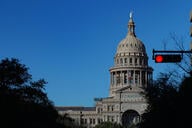You have /5 articles left.
Sign up for a free account or log in.

University of Idaho tells professors not to “promote” abortion in light of new state laws.
Axllll/iStock/Getty Images Plus
The University of Idaho is telling faculty members and other employees to discuss abortion or contraception only when relevant and in “neutral” terms, or they risk dismissal or even jail time.
In addition to these rules governing speech, the university says it cannot administer emergency contraception except in cases of rape, and that standard birth control may not be administered at all.
The new guidance came late Friday in an email from the university’s general counsel, who cited new and existing state laws restricting abortion.
During all times that university employees are performing their jobs, state laws prohibit them from “promoting” abortion in any way, including referring or counseling anyone in favor of an abortion, the email says.
Those convicted of violating new state laws against abortion face penalties including mandatory loss of state employment, bars on future state employment, prison time and fines, the university warned.
Some “related activities are permitted, with certain limitations,” the email continues. These include “directing students to sources of information outside the university; and having classroom discussions on topics related to abortion when limited to discussions and topics relevant to the class subject and instructor neutrality in the discussion.”
On classroom speech specifically, the university says that “academic freedom is not a defense to violation of law, and faculty or others in charge of classroom topics and discussion must themselves remain neutral on the topic and cannot conduct or engage in discussions in violation of these prohibitions without risking prosecution.”
Regarding birth control, the new guidance says that “we are advising a conservative approach here, that the university not provide standard birth control itself.” Condoms could be provided “for the purpose of helping prevent the spread of STDs,” or sexually transmitted diseases, but not as birth control.
Due to a law triggered by the summer’s overturning of Roe v. Wade, all abortion care is now banned in Idaho, except where the pregnant person’s life is at risk or rape or incest has been reported to authorities. The U.S. Justice Department is currently suing the state over the right of medical providers to offer stabilizing abortion care in emergency situations, and the state is subject to a related injunction, but much of the abortion care ban remains in effect. Abortion providers who provide care now face no fewer than two and up to five years in prison.
Another Idaho law passed last year bans the use of public funds for abortions, including by prohibiting “abortion-related activities” in campus-based health clinics and contracting with abortion providers or their affiliates. “No public institution, public facility, public equipment, or other physical asset owned, leased, or controlled by this state, a county, a city, a public health district, a public school district, or any local political subdivision or agency thereof shall be used for the purpose of providing, performing, or participating in an abortion,” the 2021 law also says.
Neither of these two laws address contraception in detail. The university’s new and surprising stance on administering standard birth control references a 1972 state law against advertising medicines or other means for preventing conception or for facilitating miscarriage or abortion.
“The scope of what is meant by ‘prevention of conception’ and to have ‘offered services by notice, advertisement, or otherwise …’ is unclear and untested in the courts,” the university’s email says, explaining the “conservative” new approach to contraception.
In response to questions about the new guidance, the university said in a statement that it “follows all laws. This is a challenging law for many and has real ramifications for individuals in that it calls for individual criminal prosecution. This guidance was sent to help our employees understand the legal significance and possible actions of this new law passed by the Idaho Legislature. The law (IC §18-8705) states that no public funds ‘shall be used in any way to … promote abortion.’ The section does not specify what is meant by promoting abortion, however, it is clear that university employees are paid with public funds. Employees engaging in their course of work in a manner that favors abortion could be deemed as promoting abortion.”
While abortion “can be discussed as a policy issue in the classroom, we highly recommend employees in charge of the classroom remain neutral or risk violating this law,” the university also said. “We support our students and employees, as well as academic freedom, but understand the need to work within the laws set out by our state.”
An Abundance of Caution, or a Failure to Lead?
Some faculty members and academic freedom advocates have described the guidance as unnecessarily chilling to classroom speech. Others have criticized the university’s position on birth control.
“We always knew extremists wouldn’t stop at banning abortion; they’d target birth control next,” Rebecca Gibron, CEO of Planned Parenthood Great Northwest, said in a statement, referring to the University of Idaho’s announcement as the “canary in the coal mine.” Attacks on birth control “are not theoretical. They are already happening. And the University of Idaho’s new policy is just the latest example of extremists and draconian laws threatening to strip us of all control over their reproductive health care.”
Erin Chapman, vice chair of the Faculty Senate and clinical associate professor of human development and family studies sciences at the University of Idaho, referred a request for comment to Russell Meeuf, a professor of media studies and former Senate chair who helped write a comprehensive academic freedom and academic responsibility policy that the Idaho State Board of Education adopted earlier this year. In an interview, Meeuf called the university’s speech guidance on abortion “really problematic” in that it “didn’t rely on all the work that we did to create some boundaries on academic freedom.”
Moreover, the no-public-funds-for-abortion law doesn’t say what professors can and can’t teach in a classroom context, he said. “It’s really geared towards health centers and counseling centers and is really structured on this idea of ensuring that facilities on campus aren’t referring to abortions … So it felt like a little bit of a reach on the part of the office of the general counsel to add these prescriptions for what faculty should be doing in the classroom.”
Another problem is the “slippery” concept of neutrality, Meeuf said.
“It’s so open-ended because it’s so subjective, and that gives more power to people looking to silence faculty voices than it does to empower faculty in the classroom to lead us in discussions of relevant topics. In a history class where you’re talking about the history of reproductive rights in the U.S., what does ‘neutral’ even mean in that context? How do you talk about that history in a neutral way when the very facts of it would be would appear to not be neutral to a lot of observers?”
Echoing scholars who have criticized legislative and institutional restrictions on critical race theory instruction, among other so-called divisive concepts, as dangerously and perhaps intentionally vague, Meeuf said the notion of neutrality is “at the core of a lot of our critical race theory discussions, as well. What many academics and many disciplines would assume to be empirical facts, empirical knowledge and consensus understandings of how history has operated are suddenly being deeply politicized. The very definition of what you’re doing is really, really slippery.”
Similar to the University of Idaho’s guidance on abortion, the University of Florida told professors earlier this year not to “present personal beliefs about a topic as the ‘right’ point of view or compel or encourage students to adopt a specific belief,” lest they violate the state’s new anti–divisive concepts bill. UF’s guidance reminded faculty members that violations would subject the university to “large financial penalties.”
John K. Wilson, an independent scholar of academic freedom who recently wrote an opinion piece for The Washington Post on how conservatives have “turned against” academic freedom, said the question now is “What should a university do when confronted with an unconstitutional and immoral law that represses academic freedom? Should they participate in the repression, or act against it?”
Answer? It’s the “clear obligation of the university” to protect academic freedom and “to sue to prohibit this unconstitutional law, not to participate in repression of free speech on campus,” Wilson said. “The [University of Idaho’s] general counsel should not be ordering the violation of the First Amendment rights of faculty and students and providing written quote-unquote ‘scripts’ for what teachers are allowed to say.”
Like Meeuf, Wilson criticized the concept of neutrality, saying it violates academic freedom and doesn’t even comply with the new state law.
“An instructor who allows expression promoting abortion and opposing abortion is still violating the text of the law against any promotion of abortion using state resources,” he said. “This is not a problem that neutrality will solve. This shows how overturning abortion rights has a cascading effect on other rights, including academic freedom.”
Patricia McGuire, the longtime president of Trinity University in Washington, who has urged fellow presidents to take more of a stand against threats to academic freedom, said Monday that “whether public or private, a university must resist political pressure to violate the fundamental freedom of speech that is essential to the work of the institution. Once administrators start conceding free speech to political pressure, the purpose of the university diminishes rapidly and makes it vulnerable to even more damage with each succeeding wave of governmental constraint.”
Meeuf said that the general climate for academic freedom on campus has been relatively stable, considering the political environment in Idaho. President Scott Green has defended the university against state budget cuts enacted on the premise that it’s pushing a social justice agenda, for instance.
“The entire social justice narrative on which the University of Idaho was penalized $500,000 was a false narrative, created by conflict entrepreneurs who make their living sowing fear and doubt with legislators and voters,” Green told legislators earlier this year.
For this reason, Meeuf said, “I really am doing my best to reserve judgment until we see follow-up conversations. I recognize that sometimes the initial communication on a topic might not hit the mark and they might need to backtrack a little bit and do some better communicating. I’m hoping that that’s what’s happening at the institution.”
Asked about what, if any, guidance it is providing employees in light of the state’s new abortion law, Idaho State University said in a statement that it “has not given any guidance to faculty regarding abortion. Since 2021, Idaho law has prevented state institutions of higher education, which includes ISU, from counseling for abortion, referring for abortion, or prescribing or dispensing emergency contraception.”





